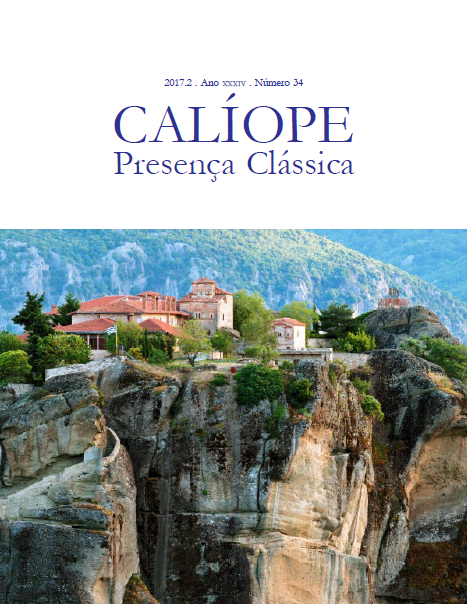Antigone's (mis)appropriations in Twentieth-Century Europe: Memory, Politics and Resistance
DOI:
https://doi.org/10.17074/cpc.v1i34.14551Resumo
In this paper, I will offer a historicized reading ofAntigone's conceptualization as a political play by analysing its reception in twentieth-century Europe. I will focus in particular on Friedrich H¶lderlin's adaptation (1804), which is one of the very earliest post- Revolutionary witnesses to the political understanding of the play: it is particularly interesting because it provides a context for Bertolt Brecht's and other twentieth-century adaptations of the myth and it represents a crucial step towards the current interpretative model in which Antigone is an icon of radical dissent and resistance. Appropriated both by the Nazi regime and by factions of the Resistance, H¶lderlin's Antigone was exploited as a political, subversive document or as representative of a nationalistic classical tradition. This account of the political reception of Sophocles' Antigone in the twentieth century will contribute to shed light on the ideological climate which produced such a high number of adaptations of the ancient play, as well as on the reasons for its pertinence to twentieth-century temporal-political conditions.
Downloads
Downloads
Publicado
Edição
Seção
Licença
Autores que publicam nesta revista concordam com os seguintes termos:
Autores mantém os direitos autorais e concedem à revista o direito de primeira publicação, com o trabalho simultaneamente licenciado sob a Licença Creative Commons Attribution que permite o compartilhamento do trabalho com reconhecimento da autoria e publicação inicial nesta revista.
Autores têm autorização para assumir contratos adicionais separadamente, para distribuição não-exclusiva da versão do trabalho publicada nesta revista (ex.: publicar em repositório institucional ou como capítulo de livro), com reconhecimento de autoria e publicação inicial nesta revista.
Autores têm permissão e são estimulados a publicar e distribuir seu trabalho online (ex.: em repositórios institucionais ou na sua página pessoal) a qualquer ponto antes ou durante o processo editorial, já que isso pode gerar alterações produtivas, bem como aumentar o impacto e a citação do trabalho publicado (Veja O Efeito do Acesso Livre).


